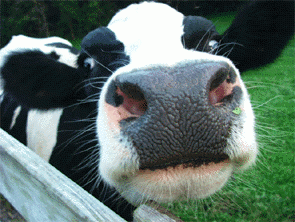
Content supplied by Rabobank
 In 2014 there was a flurry of inbound investment activity by Asian dairy companies, mostly from China, into the New Zealand and Australian dairy sectors.
In 2014 there was a flurry of inbound investment activity by Asian dairy companies, mostly from China, into the New Zealand and Australian dairy sectors.
However Rabobank warns that ongoing growth in import requirements by Chinese and wider Asian dairy companies shouldn’t be taken for granted.
In a recently-released report ‘Magnetic milk – the lure of dairy investment down under’, global agribusiness banking specialist Rabobank says a specific focus for overseas investors in New Zealand dairy has been on securing access to liquid milk and ingredients for infant formula.
Report co-author, Rabobank director of Dairy Research, New Zealand and Asia Hayley Moynihan says a quest to secure access to a high-quality, safe milk pool is driving international investment in dairy down under.
“Between 2014 and 2020 we expect China and South East Asia combined to account for almost one third of the increase in global dairy imports,” Ms Moynihan says.
“For the New Zealand and Australian dairy sectors – collectively known as Oceania – preferential market access, reputation for quality and geographical proximity are the magnetic forces supporting the investment flows into this region, and they will continue to do so.”
With demand growth in Asia expected to outstrip local supply growth capabilities, and hence drive global trade over the medium-term, many New Zealand and Australian dairy exporters are positioning themselves towards Asia, the Rabobank report says.
“Many company strategies are heavily focused on capitalising on the growing opportunity presented by dairy demand in Asia,” Ms Moynihan says.
“For Oceania processors, the strategic desire is often about building links to extensive distribution networks and local knowledge to tap into key growth export markets. Strategic partnerships can help smooth market access and thwart the impost of regulatory trade barriers.”
However, for all dairy exporters looking to engineer export strategies towards dairy markets in China, a level of caution is now required particularly when it comes to nutritional powders and liquid milk markets, Rabobank warns.
Ms Moynihan says that spectacular rates in recent years’ growth have attracted significant investment both within Oceania and further afield as companies recognise the opportunity.
“Import volume growth is expected to expand, but the rate of growth will be slower over the medium-term as the dairy market matures and retail price points challenge consumers who are facing lower rates of income growth,” she says.
“At the same time, there is significant investment in capacity in many parts of the world generating intense competition and the risk of oversupply.
“Complicating matters, regulation has been tightened, particularly in the Chinese infant formula category, and is still proving challenging.”
Looking forward, Ms Moynihan notes companies both inside and outside of the Asian region will continue to deepen market relationships and boost cooperation.
Supply chain management and vertical integration is a means for all parties to offer integrated and secure supply chains in an era of heightened demand for food safety, Rabobank says.
1 Comments
Mick's a little more generous, with a copy link to the 6 pager
http://medianet.com.au/releases/release-details?id=822878
Ben's folk less so - given its not all up, up and away tune no doubt.
We welcome your comments below. If you are not already registered, please register to comment
Remember we welcome robust, respectful and insightful debate. We don't welcome abusive or defamatory comments and will de-register those repeatedly making such comments. Our current comment policy is here.